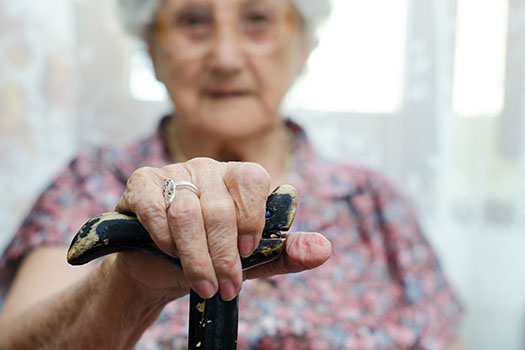Parkinson’s disease (PD) isn’t fatal, but its symptoms can significantly affect daily life. As for what causes this chronic disorder, there’s no clear answer. Many seniors with Parkinson’s have a form of the disease that has no identifiable origin (idiopathic Parkinson’s), while others have PD as a condition secondary to another main source of their symptoms. Today, we’re going to focus on the common causes specifically linked to Parkinson’s disease.
Genetics
According to the National Institutes of Health (NIH), about 15 percent of individuals with Parkinson’s have a family history of the condition, suggesting genetics is a factor. Researchers have also identified a mutation affecting a specific gene (LRRK2) that may trigger Parkinson’s disease in some people. Genes that produce a chemical called dopamine and other beneficial brain chemicals may also be affected.
Lewy Bodies
These protein clumps are found in the brain stems of individuals with Parkinson’s disease. Brain cells are unable to break down these particular proteins, so as Lewy bodies accumulate, certain brain functions may be affected. Over time, the gradual brain degeneration caused by these protein clumps may contribute to the motor difficulties commonly associated with Parkinson’s disease.
If your loved one has been diagnosed with Parkinson’s disease, he or she may get a great deal of benefit from having a professional caregiver help with everyday tasks. Families looking for top-rated elder care providers can reach out to Home Care Assistance. From respite care to specialized Alzheimer’s, dementia, stroke, and Parkinson’s care, there are many ways we can make life easier for seniors and their loved ones.
Lower Dopamine Levels
Dopamine is a neurotransmitter that helps important messages travel to different parts of the brain efficiently. In people with PD, the cells that produce this chemical become damaged, resulting in reduced levels of dopamine. Consequently, the brain’s ability to send and receive messages is impaired. This disruption in message transmission can contribute to:
• Difficulty with coordination
• Challenges with walking
• Tremors and stiffness
Fortunately, there are medications, such as levodopa, that can help seniors maintain beneficial dopamine levels. Dopamine agonists are similar medications that mimic the effects of dopamine.
Age-Related Changes
Research suggests aging is the most significant risk factor associated with Parkinson’s disease. This is believed to be the case because dopamine levels and certain brain functions naturally decrease over time. However, seniors may be able to reduce their risk of developing Parkinson’s by:
• Eating more fresh veggies and fruits loaded with brain-friendly nutrients
• Getting regular aerobic exercise to minimize brain inflammation by boosting circulation
• Consuming more foods with omega-3 fatty acids to reduce brain cell degeneration
Note: Gender may play a role as well, since men are more likely to develop PD than women.
Seniors in the later stages of Parkinson’s can live at home, but they will likely need assistance from a family member or other caregiver to do so safely. For many seniors in Anchorage, AK, live-in care is an essential component of aging in place safely and comfortably. However, it’s important for them to have caregivers they can trust and rely on. At Home Care Assistance, we extensively screen all of our live-in and 24-hour caregivers and only hire those who have experience in the senior home care industry. Our strict requirements ensure seniors can remain in the comfort of home with a reduced risk of injury or serious illness.
Occupations
There is evidence—although it’s not entirely conclusive—suggesting certain types of work may put people at risk for developing PD. This is more likely to apply to occupations, such as industrial and agricultural jobs, that involve regular exposure to toxic substances.
Environmental Toxins
There’s also some evidence suggesting exposure to certain environmental hazards and toxins may play a role in the development of Parkinson’s disease. Possible substances fitting into this category could include:
• Pesticides and insecticides
• Herbicides and fungicides
• Well water containing manganese
• Agent Orange
Caring for a senior loved one can be challenging for families who don’t have expertise or professional training in home care, but this challenge doesn’t have to be faced alone. Family caregivers can turn to Anchorage Home Care Assistance for the help they need. We provide high-quality live-in and respite care as well as comprehensive Alzheimer’s, dementia, stroke, and Parkinson’s care. If your loved one needs help with the challenges of aging, call one of our compassionate Care Managers today at (907) 770-0907.
